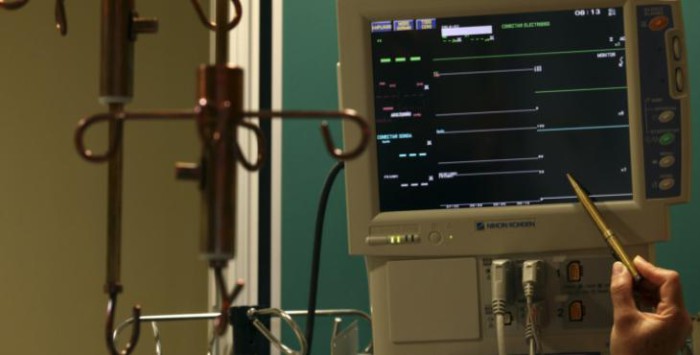Cancer Cure! Living drug may wipe out cancer
A revolutionary treatment that could prevent cancer is close to becoming widely available, scientists said yesterday.
Dubbed a ‘living drug’, it will act to some vaccine in a way that is similar, by being always alert for the disease returning.
T cell immunotherapy hit headlines last year when British baby Layla Richards became one of the primary people in the world to be given the treatment, which can be produced in the body’s own cells.
Two landmark studies have shown the therapy’s stunning potential. One indicates it is going to last for at least 14 years in the body, increasing the tantalising prospect of a long-lasting cure for cancer. In another, 94 per cent of terminally ill patients found the ailment vanish entirely.
The ‘outstanding’ results – seen in so called ‘liquid’ cancers including leukaemia rather than those that form solid tumours – are’ not precedented in medicine’, the world’s largest science conference heard.
Research Worker Chiara Bonini said: ‘This is indeed a revolution.’
The treatment is created from T cells – white blood cells that normally fight off viruses and bacteria – which are removed from the individual and tweaked to recognise and assault their cancer.
Before being infused back into the individual, where they hunt down and destroy the cancer cells the GM cells are then grown inside their millions in a lab. Scientists all over the world are perfecting the technique, along with a series of trials have now demonstrated it to have possibility that is exceptional.
Several of the most enjoyable results come from the San Raffaele Scientific Institute in Milan, where physicians gave infusions of T cells to ten patients and observed how long they lasted in the body.
They might patrol after year and stop it should they were also engineered to hunt out and destroy cancer.
She likened the treatment to your vaccine that gives protection against an infection for life, including: ‘T cells certainly are they have the potential to persist in our body for our whole lives plus a living drug. Our findings have profound implications for the design of new T cell-based immunotherapies.’
Dr Bonini said we are ‘very close’ to the first treatments becoming broadly accessible.
Professor Daniel Davis, a Manchester University expert in the immune system, described the study as ‘an important progress’.
He said: ‘The implication is that infusing genetically modified versions of the special T cells, could supply a long lasting immune response … Immunotherapy has great potential to revolutionise cancer treatments and also this study demonstrates which type of T cells could be particularly useful to manipulate.’
A second study, also presented at the convention in Washington DC seminar, bolstered the potential of T cell immunotherapy.
When researchers at the Fred Hutchinson Cancer Research Centre in Seattle gave leukaemia patients T cells that were genetically modified with only months to live, the cancer disappeared in 94 per cent of cases. Patients with other blood cancers saw response rates of greater than 80 per cent, with more than half experiencing entire remission.
‘These are patients that have neglected [every other treatment].
This really is extraordinary. This really is unprecedented in medicine … to get reaction speeds in this range in these quite advanced patients. We’ve a long way to go.
‘The response is just not at all times durable, many of these patients do relapse … but the early data is unprecedented.’
A T cell researcher at the Technical University of Munich, Professor Dirk Busch, said: ‘We have now for the first time genetically engineered T cells in patients.
‘A couple of years back, nobody would have expected that they would work that they’d survive so nicely. The door opens for getting more creative and making cells that are better.’
The treatment isn’t without its challenges, including side effects that may be severe and even deadly. Success so far has experienced leukaemia and other ‘liquid’ cancers, rather than other and prostate, breast tumours that form lumps.
Becoming T cells deep will undoubtedly not be easy. As the treatment is tailored to individual patients, price can be an issue.
She stressed that it ‘does not yet work for all patients … we still need more results from more trials … but there’s lots of expectation this type of therapy could save lives’.
SIMILAR ARTICLES
-
Prophet
-
Anni Mock



